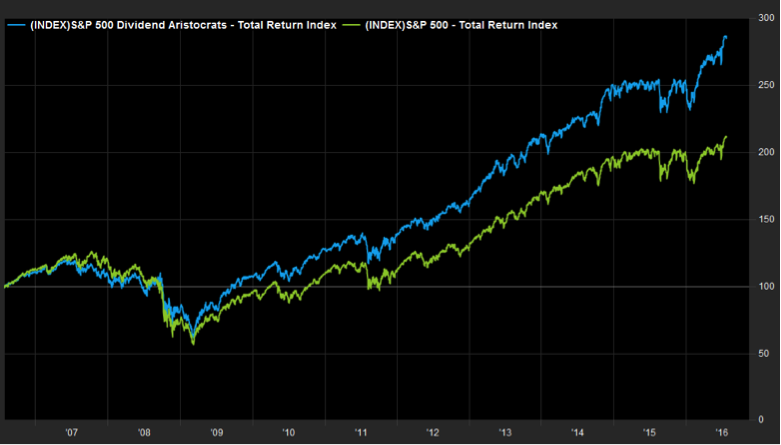Aussie ‘Dividend Aristocrats’ and how to find them
A quick checklist for aspiring ‘Aristocrats’
Marcus Tuck, Head of Equites Research, Mason Stevens
Some of the key factors that we look at when assessing whether a company can grow dividends in the long term are:
- A sustainable competitive advantage with a wide economic moat
- A track record of successful execution and profit growth
- Capable management and board aligned with shareholder interests
- Continued investment in future growth
- Great customer engagement and market intelligence
- Scalability of the business model (will it work overseas?)
- Sensible capital management
- Strong risk controls
There needs to be a clear focus on generating returns above the cost of capital. Dividend pay-out ratios should be set at a level that rewards shareholders without endangering the future growth prospects of the business.
Other things to watch out for are competitor threats or technological changes that may disrupt the company’s business model.
Companies must be able to react and respond to change
Dr Don Hamson, Managing Director, Plato Investment Management
We look for good value, high quality stocks whose earnings are growing, with a payout ratio that is not excessive, which is probably what most fund managers would say.
The reality is in a world which is becoming increasingly “disrupted” by new technologies and global competition, the ability to quickly react to a changing landscape can be vitally important in protecting returns.
In particular, we think it is becoming increasingly important to avoid what we call dividend traps. In the past few years quite a number of stocks have cut dividends, some completely, and this can have a significant impact on share prices.
We try to avoid these dividend traps, which are usually associated with changing industry dynamics, poor business performance and unsustainably high dividend levels. Avoiding dividend traps means winning by not losing.
Video: Avoiding the dividend traps
CSL stands out from the crowd
Dr Don Hamson, Managing Director, Plato Investment Management
Whilst CSL is not known for its high yield, we believe there is a good chance it can consistently grow its dividend significantly over the next 25 years.
CSL is a high quality company in a high growth industry, with defensive characteristics. Historically CSL has never cut its dividend, rather it has been able to consistently grow both its earnings and dividends through both organic growth and skilful acquisitions.
Jason Teh, Portfolio Manager, Investors Mutual
CSL has delivered 22 years of uninterrupted dividend growth since its IPO in 1994. The company should be considered a ‘Dividend Aristocrat’ because it has a relatively stable business, strong balance sheet, and a low payout ratio. This means that the company will continue to deliver further dividend growth in the future.
Australia's growing list of reliable dividend paying companies
Marcus Tuck, Head of Equities Research, Mason Stevens
Two Australian companies have been listed long enough (over 25 years) and have a good enough dividend history to already earn the “Dividend Aristocrat” label.
One is the diversified investment house, Washington H. Soul Pattinson (ASX:SOL). The other is the motor vehicle dealership company, A.P. Eagers Ltd (ASX:APE). Both companies look like continuing their impressive history of growing dividends for many more years to come.
There are three other Australian companies that have not been listed long enough to reach the 25-year milestone, but are showing every sign of becoming future Dividend Aristocrats. They are the four-wheel drive vehicle accessories company, ARB Corporation (ASX:ARP), the private hospital group, Ramsay Health Care (ASX:RHC) and the funeral services company, InvoCare (ASX:IVC).
All of these companies have excellent dividend histories so far and possess strong competitive advantages that should see them eventually become Dividend Aristocrats.
1 topic
5 stocks mentioned


